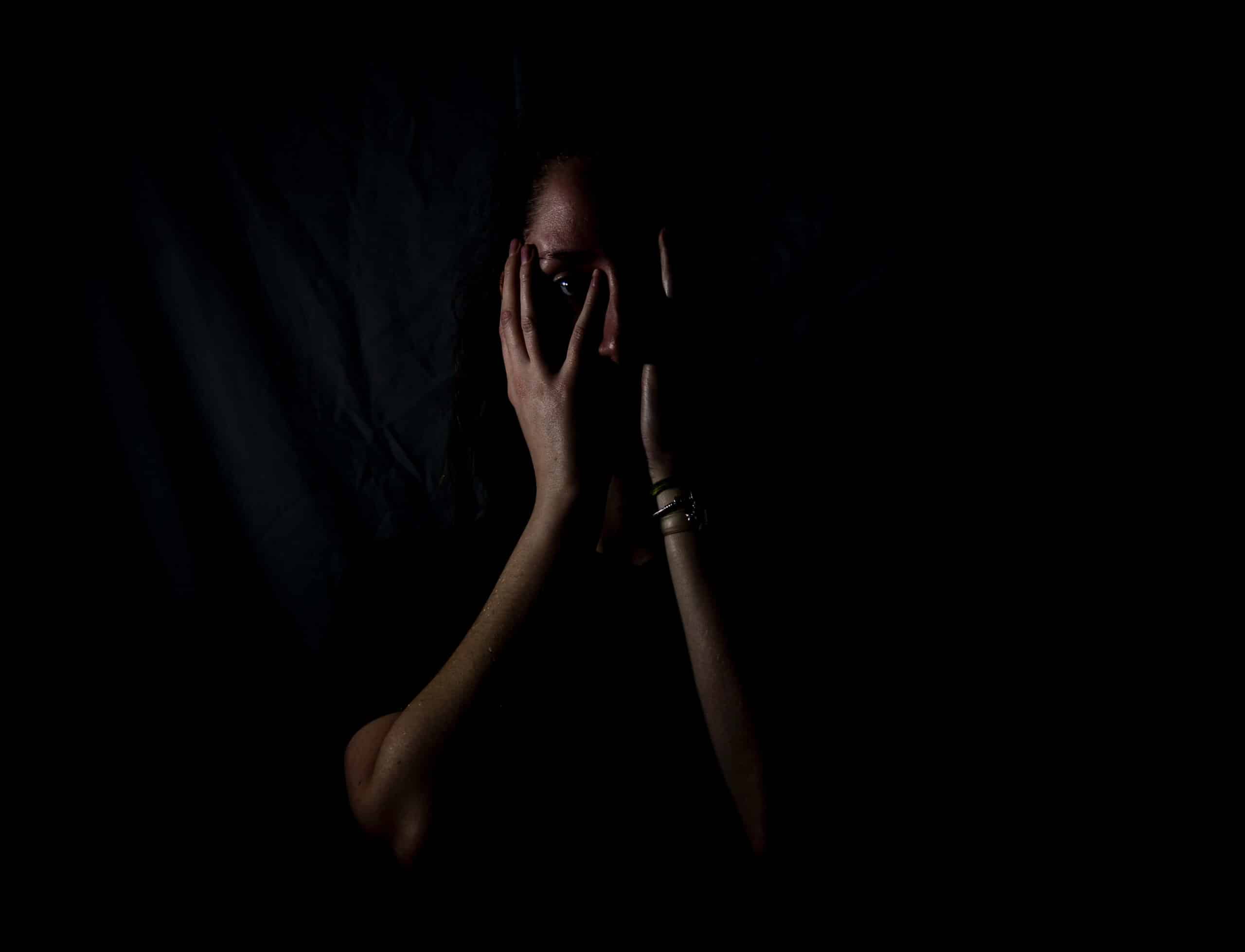The short answer is yes, cocaine use can cause anxiety and panic attacks. As you may know cocaine is a powerful stimulant that affects the central nervous system, impacting neurotransmitters triggering dopamine, serotonin, etc. The increased levels of these neurotransmitters caused by cocaine use can lead to feelings of euphoria, excitement, and increased energy, but they can also lead to heightened levels of anxiety, restlessness, and agitation.
Additionally, cocaine use can also increase heart rate and blood pressure, which can exacerbate anxiety symptoms. Long-term cocaine use can also lead to changes in brain chemistry, which can contribute to the development of anxiety disorders. Also, the “crash” that follows after the effects of cocaine wear off can also trigger feelings of anxiety, depression, and irritability.
Trying to figure out your own or your loved one’s anxiety issues and their relation to cocaine use, may feel like the age old chicken or the egg debate. Was it cocaine use that triggered an anxiety problem? Or did the struggle with anxiety lead them down a path of cocaine abuse as a way to cope?
You think if you could just pinpoint the root of their symptoms and destructive behaviors, you can finally help them. Unfortunately, cocaine abuse and anxiety feed into each other, trapping your loved one in an endless loop of addiction, apprehension and panic.
What Cocaine Does to the Brain
Ever wonder why you feel so good after eating a dessert, receiving a gift or exercising? It’s due to dopamine, a chemical in the brain responsible for this feeling. Dopamine attaches to receptors in the brain to pass on feel-good triggers from neuron to neuron, then specialized proteins called “transporters” recycle dopamine for later use.
How does cocaine cause anxiety? When your loved one uses cocaine, the drug prevents dopamine from being recycled like it’s supposed to. This abnormal abundance of dopamine, caused by cocaine, is what triggers the intense and euphoric high your loved one experiences. The problem is your loved one’s brain gets used to this increased stimulation and begins to rely on it to feel normal. If your loved one continues to take increased doses of cocaine, the more agitated and paranoid they may feel and the worse the crash will be as they come down from the high.
Long-term cocaine use can also lead to extensive and serious changes to your loved one’s mood and mental health. Since dopamine also helps to regulate mood, extended cocaine use can trigger long-lasting restlessness and paranoia.
How Anxiety Affects Your Loved One’s Wellbeing
It’s normal to feel anxiety once in a while, like in preparation for a presentation or before going on an intimidating rollercoaster ride. But it isn’t normal when anxiety affects quality of life. Anxiety disorders like generalized anxiety disorder, social anxiety or panic disorder flood the brain with stress hormones that oftentimes lead to physical symptoms like headaches and dizziness.
When your loved one’s brain is constantly flooded with stress hormones without any sort of reprieve, they will experience constant feelings of panic, paranoia and depression. This type of anxiety takes a toll on their physical health, as well, putting them at higher risk of heart disease, causing vomiting and irritable bowel syndrome (IBS), and weakening their immune system responsible for protecting them against illnesses, diseases and viruses.
The Connection Between Cocaine and Anxiety
Due to how cocaine and anxiety impact personal health and wellbeing, both can cause and aggravate the symptoms of the other. For example, if your loved one has always struggled on and off with anxiety symptoms, they may have turned to cocaine use to try to make themselves feel better.
Even though cocaine is a stimulant, some people mistakenly believe the drug can help calm and relax anxious thoughts and behaviors, but this is temporary and it’s a harmful misconception. The peace and euphoria felt during a cocaine high can also help people socialize more and feel less awkward with groups of people, a tempting result for those who struggle with social anxiety.
Reversely, your loved one’s cocaine use can lead to anxiety issues, even if they’ve never showed symptoms of anxiety before. The neurological changes caused by long-term cocaine abuse may have created an entirely new anxiety issue that requires dual diagnosis treatment to address and correct.
Even if you can’t figure out for yourself which came first, it’s important to remember that cocaine and anxiety play off each other and exacerbate your loved one’s condition. When you look at your loved one, try to empathize with them and keep in mind that this isn’t the life they wanted for themselves.
Credible addiction treatment is the only way they’ll be able to fully recover from cocaine addiction and anxiety, and they’ll need your love, support and guidance to find and maintain lasting recovery.
Get Your Loved One Dual Diagnosis Treatment at Fountain Hills Recovery
Fountain Hills Recovery is a premier addiction and mental health treatment facility in Arizona. We take an evidence-based and compassionate approach to treatment, knowing the best way to recover from dual diagnosis disorders is to employ a caring, judgment-free team who are knowledgeable and experienced using proven treatment techniques.
When your loved one enters treatment at our luxury facility and estates in Fountain Hills, Arizona, they’ll receive personalized cocaine addiction treatment and work with our team of behavioral therapists to help them heal from anxiety disorder.
Contact our expert staff today by calling us at 888.549.4037 to learn more about our treatment approach, our admissions process and how we can work together to get your loved one the treatment they need and deserve.
Frequently Asked Questions
What are the psychological effects of cocaine use?
Using cocaine can lead to various psychological effects. After the dopamine-induced euphoria fades, you might feel anxious, irritable, tired, and paranoid. Long-term excessive use can make you feel isolated, detached from reality, and lose interest in activities. These symptoms can last for days or weeks, often pushing you to use more to compensate.
How is anxiety related to substance abuse?
You might turn to drugs to escape feeling overwhelmed or dissatisfied with the world. However, this often makes those feelings worse. Over time, drugs like cocaine can increase your anxiety and nervousness. This creates a vicious cycle where you use drugs to temporarily relieve stress, but those feelings come back even stronger.
What happens when someone uses cocaine?
Whether you snort, inject, or smoke cocaine, it bonds with your brain’s dopamine receptors. This often creates euphoric feelings as dopamine stays in your brain longer than usual. You might also feel energized and hyperaware of your surroundings. However, over time, your brain adapts and becomes desensitized to this change, making you need more cocaine to feel “normal.” These effects only last 30 to 90 minutes on average, leading to a cycle of addiction and continued use.
Why does cocaine cause anxiety?
When you use cocaine, the intense high is usually followed by an equally intense crash as your brain tries to recover. These neurochemical changes mainly cause stronger feelings of anxiety, paranoia, and stress as your dopamine levels drop. This makes you feel edgy, unsettled, and agitated.
How can someone manage stress without using drugs?
Having solid coping mechanisms for handling stress can be a powerful tool for you if you are suffering from substance abuse. There are many healthier strategies that effectively manage stress and anxiety. For example, regular exercise is highly recommended by professionals. Learning meditation and breathing techniques can also help alleviate immediate stress. In more severe cases, seeking help from a licensed therapist or other mental health professional can guide you to a healthier outlook and give you the ability to cope with everyday problems without turning to drugs or alcohol.
What are the signs of a cocaine overdose?
If you overdose on cocaine, you are at significant risk of cardiac arrest or seizures. You might also experience uncontrollable shaking, chest pain, confusion, elevated body temperature and heart rate, and hallucinations.




